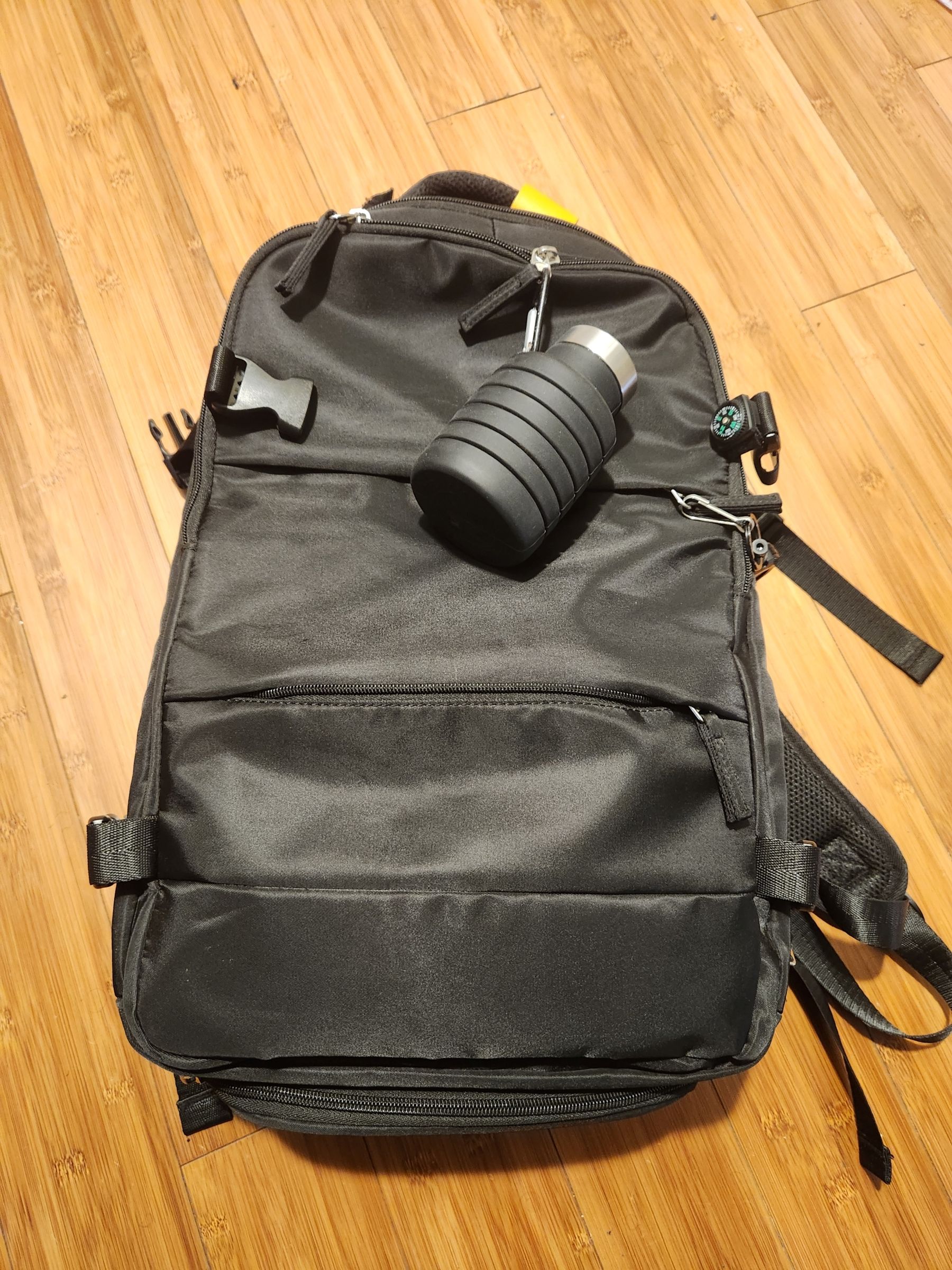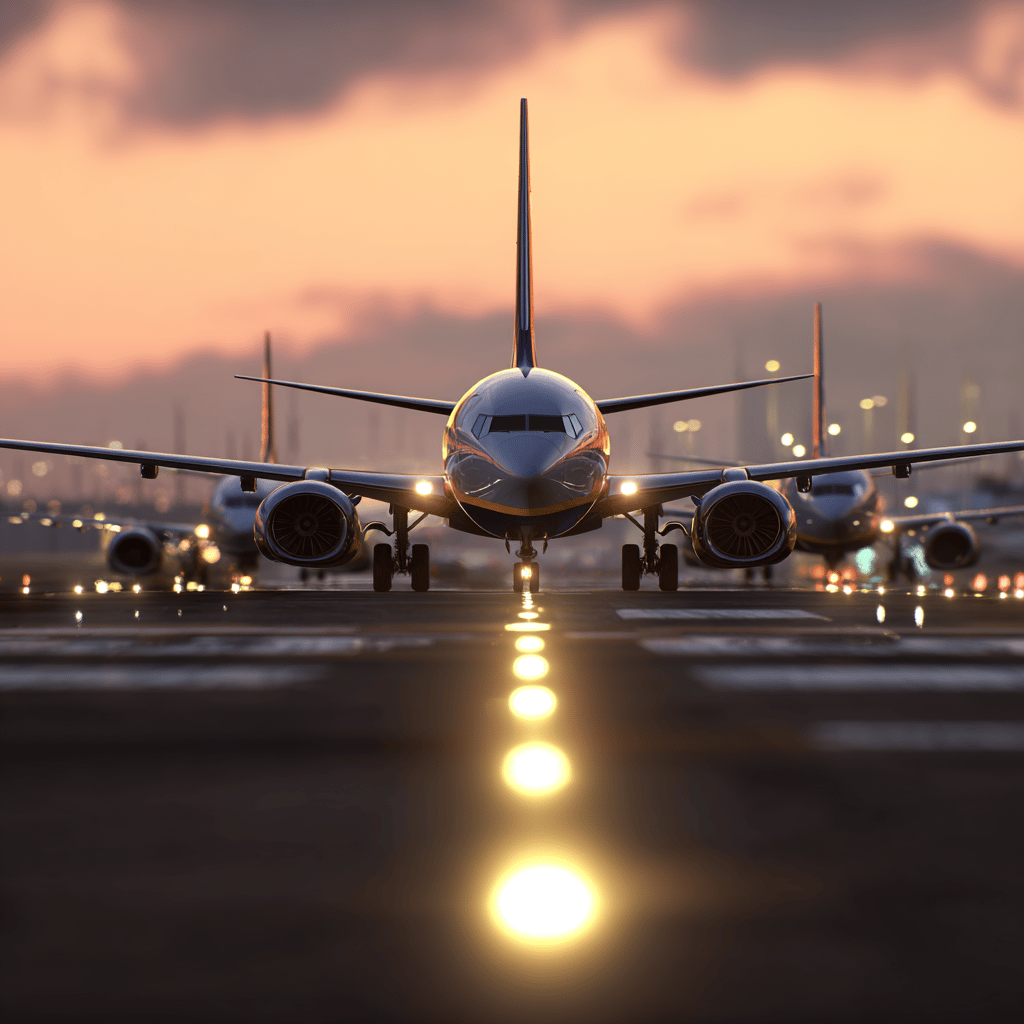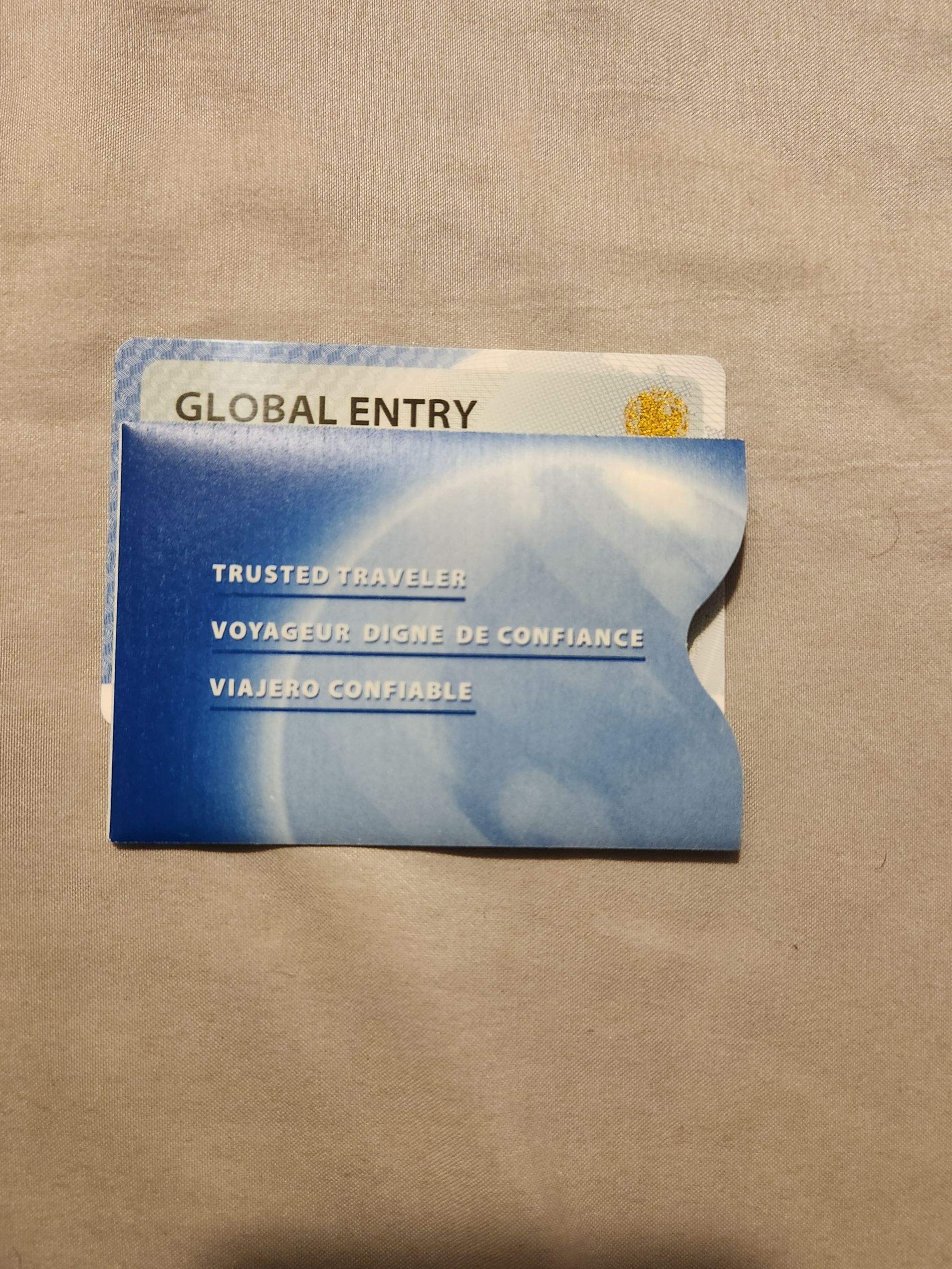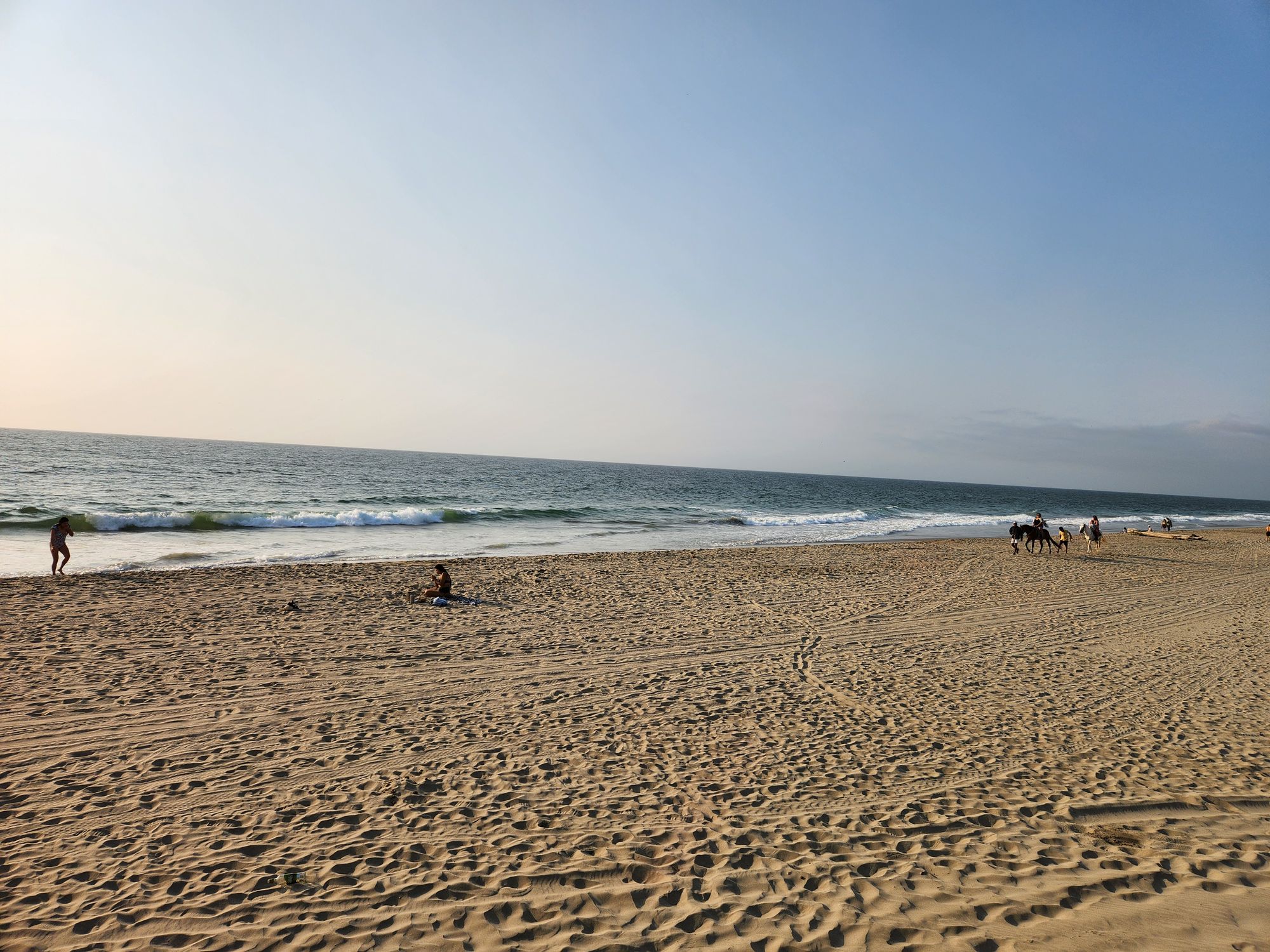Adventurer’s Dilemma Is a Travel Backpack Better Than Classic Luggage for Trips
When it comes to travel gear, the debate between backpacks and suitcases is as old as the journey itself. Picture this: you’re at the airport, and you see two types of travelers — one effortlessly gliding through the terminal with a sleek suitcase in tow, while another maneuvers through the crowd with a trusty backpack strapped on. Each approach has its merits, but the real question is, which one suits your style of adventure? With travel trends evolving and adventurers seeking more dynamic experiences, it’s time to dive into the backpack vs suitcase conversation and uncover what makes each option tick.
Choosing the right travel gear can make or break your trip. A recent survey found that 76% of travelers reported that their luggage choice significantly impacted their overall travel experience. Whether you’re an organized planner who thrives on structure or a spontaneous explorer who values flexibility, your luggage should complement your journey. From weekend getaways to epic backpacking treks, understanding the advantages of each can lead to more enjoyable adventures. So, let’s unpack this dilemma together and find out whether a travel backpack or a classic suitcase is the perfect companion for your next escapade!
The Case for Backpacks
When it comes to the backpack vs suitcase debate, one of the most significant advantages of a backpack is its unparalleled mobility. Picture this: you’re navigating through a bustling city market, dodging crowds and weaving between stalls. With a backpack securely strapped to your back, you can easily maneuver without the cumbersome hassle of dragging a suitcase behind you. This ease of carrying makes backpacks ideal for travelers who value flexibility, whether they’re hiking through national parks or hopping on and off public transportation. The ergonomic design of many backpacks also ensures that weight is distributed evenly, reducing strain on your shoulders and back.
Versatility is another standout feature of backpacks. They come in various sizes and styles, making them suitable for all sorts of travel environments — from adventurous treks in the mountains to urban explorations in vibrant cities. For instance, a compact daypack can be perfect for a day of sightseeing while still having enough room to carry essentials like water bottles, snacks, and a camera. On the flip side, larger backpacks are designed to accommodate multi-day trips, often featuring compartments for sleeping bags and camping gear. This adaptability allows travelers to embrace spontaneity; whether you decide to take an unexpected side trip or spend an extra night under the stars, your backpack has got you covered.
For adventure seekers and spontaneous travelers, backpacks are truly a game-changer. Imagine waking up in a new city and deciding on a whim to explore a nearby hiking trail or an off-the-beaten-path destination. With a backpack, you can pack up quickly and hit the road without the fuss of reorganizing a rigid suitcase. This freedom is what draws many travelers to the backpack lifestyle — it's about embracing the journey and being ready for whatever adventure comes next. In contrast, suitcases can feel restrictive and may not fit seamlessly into an impromptu travel plan, leaving you stuck in the confines of a structured packing approach. Ultimately, when weighing the pros and cons of backpacks versus suitcases, it's clear that for those who prioritize mobility and versatility, backpacks are hard to beat.
The Appeal of Suitcases
When it comes to travel gear, suitcases offer a level of structured organization that many travelers find hard to resist. With compartments and pockets designed for everything from shoes to toiletries, suitcases make it easy to keep your belongings sorted. For instance, a typical carry-on suitcase might feature a zippered section for clothing and another for electronics — perfect for a business trip where you need to access your laptop quickly without rummaging through your entire bag. This kind of organized packing is a game-changer for those who thrive on efficiency and prefer to have their essentials neatly arranged.
Comfort is another significant advantage of suitcases, especially when considering long-distance travel. Wheeled options have become increasingly popular, allowing travelers to glide through airports with ease rather than lugging heavy backpacks over their shoulders. Imagine navigating through a bustling airport or a crowded train station; the last thing you want is to be struggling with the weight of your luggage. A well-designed suitcase can save you from back pain and fatigue, making it particularly appealing for business travelers who may have multiple stops in one trip.
Suitcases are also ideally suited for organized travelers who appreciate the predictability that comes with a structured travel style. Whether you're heading out on a corporate retreat or a week-long vacation with family, having a suitcase allows you to pack methodically. You can lay out all your items, plan your outfits, and ensure that everything fits snugly without the risk of shifting around — something that can be a concern with backpacks. This level of packing precision is particularly beneficial when traveling with children or when you have specific needs, such as formal attire for an event.
In summary, the appeal of suitcases lies in their ability to offer organized packing, comfort during transit, and suitability for those with structured travel styles. They cater to the needs of organized travelers and business professionals who prioritize efficiency and ease, making them a solid choice for many types of trips. Whether you’re heading out for a weekend getaway or an extended journey, the right suitcase can help streamline your travel experience and keep everything in its place.
Comparing Durability
When it comes to durability, the choice between a backpack and a suitcase can be quite significant. Backpacks are typically crafted from materials like nylon or polyester, which are lightweight yet strong enough to withstand the rigors of travel. Many modern backpacks come with water-resistant coatings, making them ideal for unpredictable weather conditions — think sudden rain showers when you’re exploring a new city. On the other hand, suitcases often feature hard-shell designs made from polycarbonate or ABS plastics, providing a sturdy outer shell that can endure rough handling at airports or train stations. However, while they excel in protection against impacts, suitcases can be vulnerable to scratches and dents, particularly if you're lugging them through cobblestone streets.
The travel conditions you encounter can also affect the longevity of your chosen gear. For instance, a backpack is usually more forgiving when faced with varied terrains, whether you're hiking up a mountain or navigating public transport in a bustling city. Their design allows for flexibility and movement, making them less prone to damage during active adventures. Conversely, suitcases, especially those with wheels, shine on smooth surfaces like airport terminals but can struggle on uneven ground. So if your travels involve a mix of urban exploration and nature hikes, consider how each option holds up under pressure.
Maintenance plays a crucial role in extending the life of both backpacks and suitcases. Regular cleaning is essential; backpacks can often be washed by hand or machine (if the manufacturer allows), while suitcases may require just a simple wipe-down to remove scuffs and dirt. Additionally, some brands offer repair services for damaged bags, which can significantly enhance the lifespan of your investment. By keeping zippers functioning smoothly and ensuring that straps are in good condition, you can keep your travel gear ready for your next adventure without having to worry about early replacements.
In conclusion, whether you opt for a backpack vs suitcase largely depends on your travel style and the environments you'll be navigating. Each has its strengths in durability, but understanding how materials, construction, and maintenance affect longevity will help you make an informed choice. With the right packing tips and care practices, both options can serve you well on countless journeys ahead!
Packing Strategies: Backpacks vs Suitcases
When it comes to packing, the strategies for backpacks and suitcases can be vastly different, each catering to specific travel needs and styles. For adventure travel enthusiasts, efficient packing techniques can make all the difference. Backpacks thrive on a method known as "packing cubes." These handy organizers allow you to compartmentalize your clothing and gear, making it easier to access what you need without rummaging through everything. Roll your clothes instead of folding them to save space — this not only minimizes wrinkles but also maximizes the available room. Additionally, utilizing every nook and cranny of your backpack, like stuffing socks inside shoes or using hydration reservoirs for extra gear, can be a game changer for those on the go.
On the flip side, suitcases offer their own set of packing hacks designed to maximize space and keep things organized. One popular technique is layering; place heavier items at the bottom and lighter items on top to maintain balance. Using the interior compartments for toiletries and gadgets can also help keep things neat. For travelers who value organization, packing envelopes or compression bags can condense bulky items, allowing you to fit more while keeping everything accessible. When you're navigating through busy airports or train stations, having a suitcase that opens fully provides quick access to your essentials without the hassle of digging through a jumbled mess.
Accessibility is another key factor in this packing debate. With a backpack, you have the freedom to swing it around and grab what you need while on the move. This is especially handy during adventure travel when you might need to pull out a camera or snack without stopping. However, suitcases often come equipped with multiple external pockets, making it easy to reach smaller items like boarding passes or chargers without having to open the entire bag. While both options have their merits, understanding how you’ll access your belongings during your journey can significantly influence your packing strategy and overall travel experience.
Ultimately, whether you opt for a backpack or a suitcase, knowing these packing strategies allows you to tailor your approach based on your travel style. If spontaneity and mobility are your priorities, mastering the art of backpack packing will serve you well. Conversely, if structure and organization are more your speed, then honing your suitcase packing skills will ensure you're ready for any journey ahead.
Target Audience Preferences
When it comes to choosing between a backpack and a suitcase, different travel styles often dictate the best option. For the adventurous souls, like the backpackers exploring the rugged trails of Patagonia or hopping from hostel to hostel across Europe, backpacks are the clear winners. These travelers thrive on spontaneity and flexibility, making it easy to navigate cobblestone streets or squeeze into crowded buses. With features such as external pockets for quick access and adjustable straps for comfort, backpacks provide the mobility needed for those on the go. They’re perfect for those who prioritize adventure over luxury and don’t mind sacrificing some organization for the sake of freedom.
On the flip side, suitcase users often lean towards a more structured and organized approach to travel. Think of business professionals heading to conferences or families embarking on a carefully planned trip to Disneyland. For these travelers, suitcases offer superior organization with compartments designed to keep clothing neat and separate from shoes or toiletries. Many suitcases come equipped with wheels and telescopic handles, making them ideal for long walks through airports or train stations. This is especially important for those carrying work attire or delicate items that need to stay wrinkle-free. Suitcase users typically appreciate the added security of zippers and locks, ensuring their belongings remain safe during transit.
Matching your travel style with the right luggage choice is essential for a hassle-free journey. If you enjoy immersing yourself in local cultures, trying out street food in bustling markets, or tackling off-the-beaten-path adventures, a backpack is likely your best bet. However, if your trips lean more toward structured itineraries, upscale accommodations, or extensive packing needs, opting for a suitcase may be the smarter move. Ultimately, understanding your travel habits can help guide your decision in the great backpack vs suitcase debate, ensuring that your gear complements rather than complicates your journey.
Cost Considerations
When it comes to choosing between a travel backpack and a classic suitcase, cost is often a significant factor for many travelers. Quality backpacks can range from around $50 for basic models to upwards of $500 for high-end brands with advanced features. On the flip side, suitcases typically start at about $75 and can soar over $1,000 for luxury options. However, it's crucial to consider not just the sticker price but also the long-term value. A well-constructed backpack, designed for durability and comfort, can last you through years of adventures, making that initial investment more worthwhile than it may seem.
Durability is a key component in this equation. For instance, a mid-range backpack made of tear-resistant nylon may withstand rough handling during a trek through the mountains or a bustling city far better than a cheaper suitcase with flimsy materials. In fact, many travelers find that opting for a sturdy backpack saves them money in the long run by reducing the need for replacements. Suitcases, especially those with wheels, can provide excellent organization but may not hold up well against rugged conditions; they’re more suited to well-paved airports than rocky trails.
Moreover, think about how your travel accessories contribute to overall savings. A versatile backpack can double as a daypack for excursions, eliminating the need for additional bags and gear. With compartments designed for easy access, you’ll spend less time rummaging through your belongings and more time enjoying your trip. On the other hand, if you frequently travel for business or require formal attire, investing in a quality suitcase that keeps your clothes wrinkle-free might save you on laundry services or last-minute dry cleaning.
Ultimately, whether you choose a backpack or a suitcase, aligning your purchase with your travel style and needs will help ensure you get the best bang for your buck. If you're an adventure seeker who loves spontaneity, a reliable backpack could be your best companion. Conversely, if you prefer organized travel with structured packing solutions, investing in a suitcase may provide greater peace of mind — and in both cases, you'll want to consider the overall cost of ownership beyond just the initial price tag.
Travel Scenarios: When to Choose What
When planning your next adventure, the type of trip you’re embarking on can significantly influence whether a backpack or suitcase is the right choice. For weekend getaways, where spontaneity and quick movement are key, a travel backpack often reigns supreme. Imagine arriving at a bustling city for just two days; with a well-packed backpack, you can easily navigate crowded public transport or bustling streets without the hassle of dragging a suitcase behind you. Plus, backpacks typically fit into tighter spaces — like overhead bins on trains or under café tables — making them perfect for those impromptu escapes.
On the flip side, for extended trips, especially those that involve multiple destinations or varying climates, a suitcase may provide the organization and capacity you need. Think about a two-week journey through Europe; you might want to pack both summer clothes for Barcelona and winter gear for the Alps. A suitcase allows you to compartmentalize your clothing and essentials neatly, making it easier to find what you need without rummaging through a jumbled mess. Plus, if you're hopping from hotel to hotel, wheeled suitcases can save your back and shoulders from extra strain.
For family trips, the suitcase shines as well. Picture a family of four heading off to a beach resort — having a suitcase means everyone can contribute their gear while keeping things organized. With separate compartments for kids' toys, beachwear, and snacks, you can quickly access items without turning the car into a chaotic scene. Additionally, suitcases can typically hold more than backpacks when it comes to bulky items like strollers or travel cribs, making them a practical choice for parents needing to transport all the necessary gear.
Ultimately, the decision between a backpack vs suitcase boils down to the specifics of your trip types. Each has its strengths, and understanding your travel style will help you choose the perfect companion for your next journey. Whether you’re an adventurous weekend warrior or planning an elaborate family vacation, selecting the right luggage can enhance your experience and make your travels more enjoyable.
Environmental Impact of Travel Gear
As travel enthusiasts, we often focus on the thrill of exploration, but it's crucial to consider the environmental impact of our travel gear. Backpacks and suitcases, while essential for our adventures, can leave a considerable footprint depending on their materials and manufacturing processes. Many modern backpacks are crafted from recycled plastics and sustainable materials, such as nylon sourced from old fishing nets or even organic cotton. Brands like Patagonia and Osprey are leading the way by prioritizing eco-friendly practices, ensuring that your spontaneous trips don’t come at the expense of the planet.
On the flip side, traditional suitcases can sometimes be less environmentally friendly due to their heavier reliance on plastic components and synthetic materials. Manufacturing a suitcase can involve high energy consumption and non-renewable resources, making them less sustainable overall. For instance, a standard hard-shell suitcase may take years to decompose, adding to landfill waste. However, some companies are now producing suitcases with sustainability in mind, focusing on lightweight designs made from recycled materials and offering repair services to extend their lifespan.
When it comes to choosing eco-friendly options, both backpacks and suitcases have improved significantly over the years. Consumers can look for brands that disclose their manufacturing processes and commit to reducing their carbon footprints. Certifications like Global Recycle Standard (GRS) can help you identify products that are genuinely sustainable. Additionally, consider opting for products that are designed for durability rather than disposability; investing in quality gear means fewer replacements over time, which is better for both your wallet and the environment.
Ultimately, whether you're planning a weekend getaway or a longer expedition, being mindful of your travel gear's environmental impact is essential. The right choice can align with your adventurous spirit while also contributing to a healthier planet. So next time you pack for those spontaneous trips, think about how your gear affects not only your journey but also the world around you!
Finding Your Perfect Travel Companion
As we’ve explored throughout this article, the backpack vs suitcase debate ultimately boils down to your personal travel style and the unique demands of your adventures. Backpacks offer unrivaled mobility and adaptability for spontaneous trips and rugged terrains, while suitcases shine in structured organization and comfort during longer hauls. For instance, a recent survey found that 68% of frequent travelers prefer backpacks for short trips due to their ease of movement, while 72% of business travelers opt for suitcases when packing for conferences or formal events.
Choosing the right travel gear can make or break your journey, so it’s essential to reflect on what type of traveler you are. Whether you're gearing up for an exhilarating backpacking trip through the mountains or a well-planned family vacation, consider how each option aligns with your needs. With the right mindset and equipment, you can ensure that your travel companion — be it a trusty backpack or a reliable suitcase — will enhance your experiences and help you create unforgettable memories on every adventure. Happy travels!



